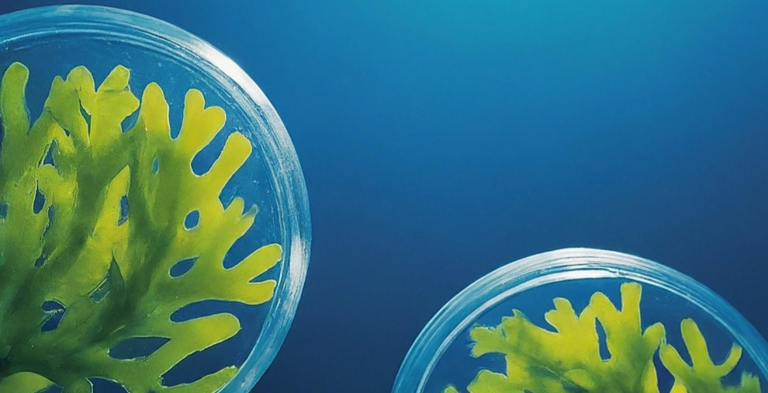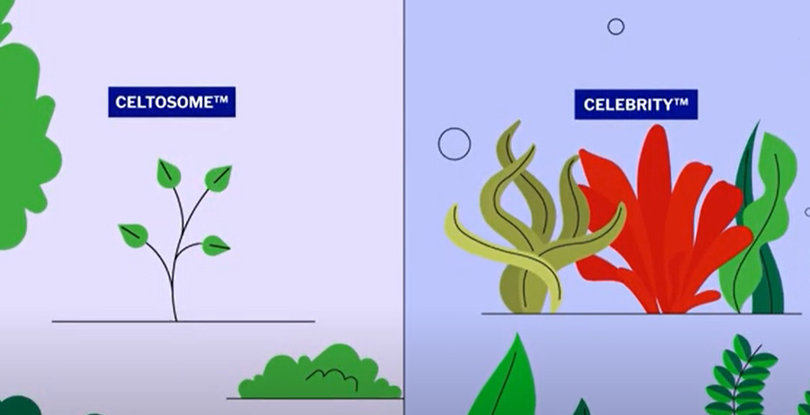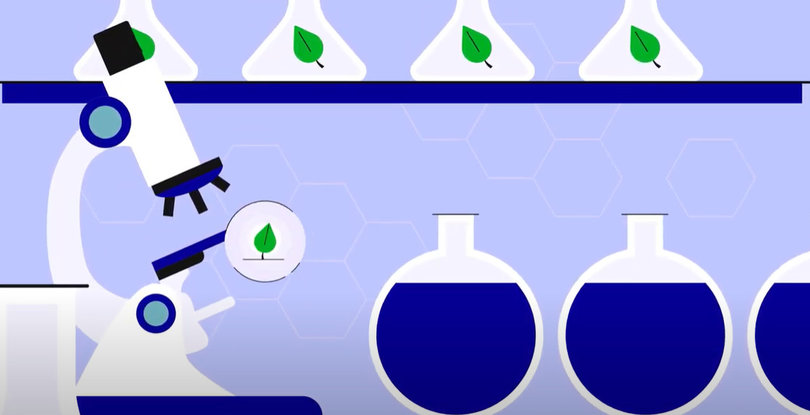Consumers are increasingly demanding natural and sustainable cosmetic products. According to recent consumer analyses, 31% of Germans attach great importance to the fact that personal care products contain no “chemical additives” and are produced on a natural basis.1 They want to know that the raw materials used in their personal care products are sustainably cultivated and ethically sourced. For almost half (49 per cent) of consumers, ethical conditions are one of the most important purchasing factors.2 Natural ingredients that are produced using biotechnology processes are a great option for meeting this demand.
- March 6, 2024
- 4 minutes of read time
Biotechnology provides natural, sustainable ingredients for tomorrow
In the effort to act sustainably, biotechnological processes offer several advantages for the protection of biodiversity. Firstly, they do not require land, which can help to preserve natural habitats. Secondly, no components need to be taken from nature, which means that protected plants can also be used. Thirdly, biotechnological processes are often carried out with low CO2 emissions. And finally, fewer plants need to be cultivated or imported, which in turn contributes to the preservation of biodiversity.
And so plant cell cultures have many advantages: They allow us to manufacture reproducible biomasses in controlled condition avoiding seasonal variations, giving us the possibility to overexpress some interesting specialized metabolites. Our CELTOSOME™ active ingredients are plant stem cells, which contain all the benefits of a marine extremophilic plant. CELTOSOME™ Eryngium Maritimum is an exclusive stem cell culture from the halophyte plant sea holly, which is a protected species and may not be harvested. Our stem cell biotechnology is therefore a method of making this plant available for cosmetic applications. Seaholly is known to promote the regeneration of aging skin. CELTOSOME™ Eryngium Maritimum shows thanks to its dedifferentiated cells a specific multifunctional activity, which targets the epidermal-dermal junction, helps to increase elastin and collagen synthesis (collagen booster) and regulate epidermal renewal for plump, firm and radiant looking skin.
Biotechnology can be used to extract certain ingredients from plant-based raw materials or to produce certain natural substances in cell cultures. These methods offer several advantages over conventional processes, including greater sustainability and more consistent quality. In addition, biotechnology can open up new sources of raw materials, such as algae. Finally, it can be used to produce bioactive molecules that can be optimized for specific skincare effects and can outperform traditional extracts.
Our CELEBRITY™ biotechnology is the world's first technology to cultivate macroalgal cells in the laboratory in order to propose active ingredients for cosmetics. It is an opportunity to look for the beneficial properties contained in rare macroalgae and little-known species and gives us access to an entire segment of biodiversity which remains unexplored today to give birth to very innovative and sustainable cosmetic active ingredients.
Our gametophyte extract EPHEMER™, for example, is able to exert an immediate (24 hours) and long-lasting (8 days) antioxidant effect on the cells of the skin, which was confirmed by in vivo tests after 28 days.
Gametophytes are cells released by common macroalgae sporophytes as an ephemeral stage in the life cycle of reproduction. In the sea, gametophytes are unstable and not available in large quantities. In photobioreactors, gametophytes are stable thanks to specific conditions. During this growth phase, the macroalgae cells accumulate antioxidant molecules that are of interest for cosmetic applications. In vitro, the classic sporophyte extract showed a significantly lower antioxidant effect in comparison. It is a good example of how, thanks to biotechnology, we are able to make special bioactive molecules available for cosmetic applications that also have better properties than the classic macroalgae extract.
Seppic's vision focuses on responsible behavior and improvements in the social, societal and environmental aspects of our work. Biotechnological processes are one example of how we minimize our impact on the climate and contribute to the preservation of biodiversity. Continuously reducing the environmental footprint of our activities is a central pillar of our CSR programme "Caring".
Furthermore, ingredients obtained using biotechnological processes not only fulfill consumers' desire for natural and more sustainable products, but also have completely new properties and mechanisms of action, thus offering exciting new possibilities for cosmetic products.
1. https://biooekonomie.de/themen/dossiers/biobasierte-kosmetik#:~:text=Die%20Kosmetik%2DIndustrie%20setzt%20zunehmend,neue%20Eigenschaften%20und%20Wirkmechanismen%20auf.
2. https://www.mintel.com/de/kosmetik-und-koerperpflege/das-sind-die-beauty-trends-in-deutschland/




